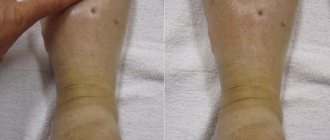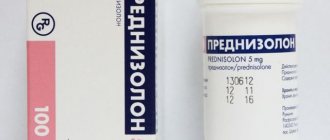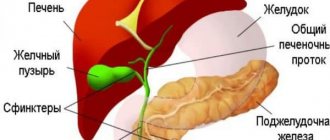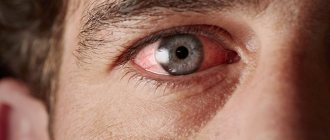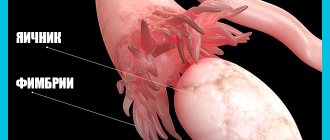Doctors like to say that all diseases are caused by nerves. A busy daily schedule, constant stress, dissatisfaction with oneself and life in general, stressful and conflict situations - all become the cause of the development of various diseases, among which pharyngeal neurosis stands out. Symptoms appear clearly, which helps in diagnosing the disease and its treatment.
The entire human body is riddled with nerves. Often a person experiences pain in various parts of the body when something worries or frightens him very much. However, readers of the psychiatric help website psymedcare.ru are unlikely to pay attention to the fact that their pain arises as a result of strong experiences. The pain subsides over time, and it seems to the person that everything has passed.
However, if a person periodically faces stressful experiences and deep worries, then his pain may become constant. Their localization depends on where in the human body his “weak spot” is located. And often the weak point becomes the throat, where neurosis occurs - a physiological disease against the background of mental experiences.
What is pharyngeal neurosis?
Pharyngeal neurosis is a pathological change in the sensitivity of the funnel-shaped canal connecting the nasal and oral cavities with the pharynx and esophagus. The main reason for its occurrence is a mental disorder, which is provoked by severe stress, hysteria or overstrain of the nervous system.
The disease in question appears after the age of 20 in people. Treatment is carried out by a neurologist, neuropsychiatrist or psychotherapist.
Pharyngeal neurosis manifests itself in three forms:
- Anesthesia. Complete or partial decrease in sensitivity of the pharynx, accompanied by problems with swallowing. Often provoked by hysteria, as well as influenza, syphilis, brain tumor, influenza. If left untreated, aspiration of food or saliva is possible due to damage to the functions of the larynx, which threatens human life.
- Hyperesthesia. The pharyngeal reflex increases due to chronic throat diseases or severe mental shock. In the throat, patients feel spasms, soreness, pain, a “scratching” sensation, and a film covering the throat. In this case, the diagnosis is carried out by an ENT doctor.
- Paresthesia. The symptoms resemble paresthesia, supplemented by itching, numbness, tickling, tingling, and a feeling of a foreign body (lump) in the throat. You may experience headaches that get worse when swallowing. Occurs more often in unbalanced people, irritable people and women during menopause.
go to top
Neurosis and anesthesia
When the pharyngeal mucosa loses sensitivity, the pharyngeal reflex is completely absent. The following main reasons can be identified:
- Brain tumor or syphilis.
- Hysteria.
- Paralysis.
- Diphtheria, influenza.
- Sclerosis.
When pharyngeal anesthesia extends to the larynx, there is a danger that the person will accidentally inhale food. In this situation, you need to consult with an otolaryngologist or neurologist, so you will find out what caused your unpleasant condition - organic disorders of the nervous system.
How does pharyngeal neurosis manifest?
Neurosis of the pharynx manifests itself in those symptoms that are inherent in one form or another: anesthesia, hyperesthesia or paresthesia.
Anesthesia can be called in simple words the absence of the pharyngeal reflex, which often occurs during a hysterical attack. In addition to the above reasons, it can be caused by multiple sclerosis and bulbar palsy. Anesthesia to a low degree is called hypoesthesia.
Hyperesthesia, in addition to the symptoms described above, can be supplemented by coughing and attempts to expectorate, which often provokes a gag reflex. Hyperesthesia is also called increased sensitivity of the pharynx, which manifests itself during inflammatory processes in the respiratory organs (granular or lateral pharyngitis, chronic tonsillitis). Hyperesthesia is also observed in people who have bad habits (smoking or alcohol addiction) or who work in hazardous industries, where they constantly inhale various particles and dust.
Since pharyngeal neurosis is a consequence of mental shocks and strong experiences, one should understand the reasons for their occurrence. Hysteria can be a consequence of mental activity or various physiological diseases:
- Infection.
- Intoxication.
- Exhaustion.
- Physical injuries.
- Predisposition.
People of a neurotic type are prone to hysteria. Often this is a character trait or individual inclination of a person. Hysteria is often a consequence of improper upbringing and a feature of the behavior to which a person is accustomed.
Neurasthenia also affects a person’s health, since it has a permanent manifestation and depletes mental and physical health. Neurasthenia is associated with a person’s constant desire to improve his social status and material well-being. Since not everyone can achieve what they want, a person experiences disappointment, affect or anxiety.
The inability to plan your day in such a way as to have time to rest, work and eat a full meal leads to tension in brain activity. And over time it affects the state of health - the development of pharyngeal neurosis.
It is hysteria and neurasthenia that become the causes of the development of paresthesia. The appearance of problems with sensations in the throat causes people to focus on their attempts to swallow. A different implementation of the process raises concerns, which is why people begin to give themselves different diagnoses.
go to top
Causes
Pharyngeal neurosis is triggered by mental causes. This is, first of all, a tendency to hysterics, hidden or unconscious aggression, a feeling of fear, increased anxiety, and stress. Long-term stress, overwork, emotional burnout, and exhaustion have a negative impact.
Various diseases play an important role in the origin of pathology:
- Thyrotoxicosis. The disease is associated with increased production of thyroid hormones.
- Cervical osteochondrosis. Intervertebral herniation, destruction of discs leads to pinched nerves. As a result, the transmission of nerve impulses is disrupted, and unpleasant sensations appear in the throat.
- Chronic inflammatory diseases. Laryngitis leads to thickening of the ligaments. With pharyngitis, the pharynx is affected; with tonsillitis, the tonsils are affected.
- Tumors. Neoplasms in the nasopharynx area put pressure on organs located in close proximity to their location. Tumors in the brain compress the pathways through which nerve impulses travel to and from the centers that regulate speech organs.
- Myotonia. The pathology is hereditary. Manifests itself in the inability of muscles to relax. The process of swallowing and tongue movement is disrupted. Symptoms worsen in the cold.
- Myasthenia. The disease is associated with a decrease in the strength of muscle tissue, including the neck muscles. Fatigue quickly sets in and discomfort appears after a conversation.
- Gastrointestinal diseases.
Discomfort in the throat, lump sensations occur due to poisoning, unfavorable environmental conditions, smoking, and after using certain medications.
Diagnosis of pharyngeal neurosis
For various problems in the pharynx area, you should consult an ENT doctor (otolaryngologist). He will first listen to all complaints and conduct an external examination. The problem with diagnosing pharyngeal neurosis is that it is very difficult to identify. The symptoms that are detected and complained about by the patient are often attributed to diseases that a person may suffer from at the same time. This allows for an erroneous diagnosis.
Additional research methods are:
- MRI.
- Electromyographic examination.
- Radiography.
Since pharyngeal neurosis manifests itself in symptoms that may be mistakenly attributed to another disease, a person should carefully monitor his condition. If the prescribed treatment does not help, the symptoms continue to bother you, you should ask the question: “What emotional state was I in before the illness and am I still in it?”
If you notice strong feelings, depression, stress, shock and other psycho-emotional factors of a strong nature, then you should contact a psychotherapist or psychoneurologist so that he can also examine and make his verdict.
go to top
Complications
Despite the fact that in general pharyngeal neurosis is not such a severe disorder, some of its forms lead to dangerous consequences. So, during anesthesia, there is a high probability of choking on saliva and pieces of food. This leads to asphyxia.
What is important is the forced decrease in the patient’s socialization and decrease in performance.
Neurosis of the pharynx, caused by psychological trauma, stress, tension, is highly treatable. However, the disorder is unpleasant and in some cases can seriously frighten a person. Disorders that appear as a result of organic lesions require immediate treatment to avoid serious consequences.
Source: neuromed.online
How is pharyngeal neurosis treated?
Treatment of pharyngeal neurosis begins with eliminating the causes and symptoms that bother the person:
- Sedatives are prescribed to normalize the functioning of the nervous system.
- Anti-inflammatory drugs and physiotherapeutic procedures (novocaine blockades, phono- and iontophoresis, mud therapy) are prescribed if inflammatory processes are detected in the pharynx.
- Acupuncture is offered, which should affect both the physical and mental state.
- Hypnosis is becoming a radical treatment method, which is often resorted to due to a person’s inability to cope with their own emotional turmoil.
- Quit smoking and alcohol.
- Rest more and be in the fresh air.
- Eat right (do not eat cold, hard or hot foods).
- Avoid stress.
You should definitely undergo a course of treatment and a psychotherapist to rid yourself of negative emotions and experiences. Here you will have to solve your internal problems and conflicts with other people. You will have to do a little self-development, which is also necessary for the psyche, just like strong immunity for the body.
The modern world has gladly picked up the idea of old times that there are spiritual and non-spiritual people, materialists and vicious representatives of humanity. Society seems to have divided a person into two halves: body and soul. And some people took the position of the soul, while others took the position of the body. At the same time, various sciences about the body (medicine, yoga, sex technology, etc.) and sciences about the soul (religion, spiritual books, confession, etc.) appeared.
A person was divided, which is why he cannot live a full life. You can’t throw away basic physiological needs in order to become a completely spiritual person, can you? You also cannot turn away from your feelings and emotions arising in the soul, submitting only to the needs of the body. Man is a unity of soul and body. And in order to live fully, successfully and happily, you should take care not only of your body, but also of your soul; not only about the soul, but also about the body.
Rise above the duality of the world. As long as you divide yourself into two halves (spiritual and physical), working with only one of them, you cannot achieve growth in your development. If you are focused only on wealth (material world), forgetting about human qualities (spiritual world), over time you will lose your money. If you care only about your inner beliefs and worldview, rejecting your own body, which requires food, water, cleanliness, protection and sex, then your spiritual knowledge will be just an empty phrase. Be above dividing a person into two halves. Work and develop both sides of your manifestation in this life.
A person consists of body and soul, which means you need to take care of both equally:
- Engage in physical exercise and spiritual development.
- Study the science of the body and the science of the soul.
- Accept both scientific research and spiritual ideas.
- Eat, have sex, earn money and love, show wisdom, patience.
go to top
Complex treatment
When pharyngeal neurosis is determined, treatment should be comprehensive. It is prescribed strictly individually. Most often, therapy is carried out by psychotherapists or neurologists, since the nature of the pathologies is in the area of disruption of the nervous system.
Special classes and conversations are held with the patient. Group therapy and hypnosis may be used. All this helps relieve symptoms if the disease develops due to nervousness. A favorable environment is created: daily walks in the fresh air, a clear daily routine, good sleep, etc.
Treatment is prescribed in sanatoriums where there are hot springs, balneotherapy, Charcot or circular showers. All this helps relieve irritability, calms the nervous system, and relieves inflammation.
How to treat pharyngeal neurosis with medications? Basically, doctors prescribe several groups of drugs:
- antidepressants that restore the metabolism of norepinephrine and serotonin (Coaxil, Citalopram);
- tranquilizers to relieve anxiety, improve sleep, appetite and blood circulation (Afobazol, Mebikar);
- neuroleptics that have a calming effect, relieving excessive excitement and attacks of hysteria (Truxal, Aminazine).
In severe cases of pharyngeal neurosis, Clonazepam, Phenazepam, and Mezapam are prescribed. But these drugs are taken in small doses and with great caution, as they are quickly addictive and have a poor withdrawal syndrome. The patient may experience insomnia, panic, and weakness. The drug "Grandaxin" is prohibited for mental disorders and depression. Otherwise, taking it may cause suicide attempts.
Vitamin complexes are prescribed. If the cause of neurosis is diphtheria, a special serum is administered. For infectious diseases, antibacterial therapy is prescribed. Malignant tumors are removed surgically. If the cause of neurosis is spinal disease, massage, physical therapy and swimming are prescribed. Novocaine blockades are placed. Electrophoresis is prescribed.
Forecast
Pharyngeal neurosis is the body’s response to what is happening in a person’s soul. And if you do not deal with both components of your life, then the forecasts will be unfavorable.
Soul and body, like yin and yang, cannot exist without each other. The body requires as much attention as the soul, and the soul requires the same effort as the body.
A successful person is above duality. He needs spiritual development, a lot of money, love, and sex. There is no need to separate matter and spirituality - you need both. One should be above duality, accept and strive for both love (spirituality), and sex, money (matter).
Are you asking questions: why are you unsuccessful and unhappy in life, why are you constantly sick or periodically experience unpleasant symptoms in the pharynx? Because you divided yourself into soul and body (matter), after which you began to work on only one of these spheres. But as soon as you begin to engage with both soul and body (matter), your life will become much more harmonious, more fulfilling and healthy.
Therapy using traditional methods
How to get rid of pharyngeal neurosis using traditional medicine? Mint helps relieve tension and has a calming property. The leaves of the plant are added to tea or a decoction is made from them. Tinctures of thyme or garlic oil help well. The first is drunk 15 g 3 times a day. To do this, a tablespoon of thyme is infused in half a glass of alcohol. Garlic oil tincture is rubbed into the temples 2 times daily.
A decoction is made from willow bark. A tablespoon of bark is poured into a glass of boiling water. Cook over low heat for 20 minutes. Then the broth is filtered and drunk 4 times a day, one tablespoon.
Fresh horseradish is used for compresses. It is rubbed and applied to the throat for several minutes. The top of the mass is covered with cellophane and a warm cloth (preferably wool). Herbs that have a calming effect:
- prickly hawthorn;
- ginseng;
- motherwort five-lobed;
- Adonis spring;
- oregano;
- blood red hawthorn;
- Eleutherococcus;
- Melissa;
- dope;
- Aralia Manchurian.
Folk recipes
When pharyngeal neurosis is the result of severe stress, you can prepare the following traditional medicine:
- 10 g of willow bark should be poured with 290 ml of boiling water and left for a quarter of an hour. Take 15 ml three times a day;
- mint tea will help calm the nerves and reduce the manifestations of the disease;
- It is recommended to pour 50 g of thyme with 450 ml of vodka and leave for 2 weeks. Take 10 drops three times a day;
- 15 ml of garlic oil should be diluted with alcohol (480 ml) and used to lubricate the temples twice a day.
Therapy with folk remedies as a treatment outside the complex is allowed only in cases where pharyngeal neurosis is caused exclusively by a psychogenic factor, and its cause is inorganic in nature.
In the treatment of any neurosis, the primary task is to relieve tension. Mint, lemon balm, oregano, valerian, hop cones, sweet clover, willow bark, European rosemary, and thyme are widely known for their sedative effects. Decoctions and infusions of these herbs normalize sleep, relax and soothe.
- Steam 1-2 pinches of dried mint leaves in a glass of boiling water, leave for 15-20 minutes, strain and drink before bed.
- Pour 50 grams of thyme into 0.5 liters of vodka, leave for 14 days in a dry, dark place, strain and take 10 drops 2-3 times a day.
- A collection of birch leaves, rose hips, oregano, motherwort, lemon balm and spring Adonis, pour 10 grams of each herb into 250 ml of hot water and leave for 3 hours. Take 20 minutes before meals 3 times a day.
- Pour 2 tablespoons of St. John's wort, hawthorn, datura and oregano into 0.5 liters of boiling water, leave for 2 hours and strain. For 14 days, take half a glass of tincture 3 times a day. a day 20 minutes before meals.
- Infuse 2 tablespoons of sweet clover in 200 ml of hot water for an hour. Strain and drink 50 grams of infusion 2 times a day, regardless of meals.
- Pour 400 ml of boiling water over crushed willow bark (10-15 g), boil for no more than 5 minutes, strain and leave for an hour. Take 1 tbsp. spoon 3-4 times a day.
- 3 tbsp. Boil tablespoons of valerian root in 300 ml of water and leave for 30 minutes. Take 50 grams 3 times. a day half an hour before meals.
- Dilute 1 tablespoon of garlic oil in 0.5 alcohol and rub into the temple area.
- Apply grated horseradish as a compress to the throat area. Cover with a thick cloth and keep for 15-20 minutes.
Symptoms of the disease
All prevention of pharyngoneurosis, like any other neuroses, comes down to supporting physical and mental health in a single harmonious balance. All recommendations are extremely simple:
- regularly devote time to at least one sport;
- make a habit of positivity and goodwill towards everything that happens;
- at the first suspicion of problems with the central nervous system and spine, immediately seek medical help;
- give up nicotine addiction forever;
- develop an optimal work and rest schedule for yourself;
- balance your diet as competently as possible;
- take alcohol only in minimal doses, or better not take it at all;
- do not experience complex nervous shocks on your own - seek help from a psychologist or psychotherapist;
- increase sleep duration to at least 7-7.5 hours;
- Never let respiratory inflammation take its course.
Treatment of pharyngeal neurosis is a long process. In some cases, depending on the cause and severity of the pathology, complete recovery occurs only within a few months or even years. The most important thing is not to stop at one stage and continue therapy until the symptoms are completely eliminated and a positive result is achieved.
Symptoms and treatment of pharyngeal neurosis depend on the classification of the disease. There are 3 development options.
Types of disease:
- Anesthesia.
- Hyperesthesia.
- Paresthesia.
Anesthesia
This type of disease is characterized by low sensitivity of the larynx or its complete absence. The swallowing reflex is also impaired.
Reasons for appearance:
- Hysterical syndrome.
- Common sclerosis.
- Boulevard paralysis.
- Post-infectious state.
- Brain tumors.
- Syphilis.
This form of throat neurosis is dangerous due to the possibility of the lack of sensitivity spreading into the larynx. This increases the possibility of a person inhaling and swallowing unchewed food and dirty air. It is especially dangerous if the disease manifests itself in a child.
Hyperesthesia
This syndrome is characterized by increased sensitivity of the throat. Hyperesthesia is characteristic of neurotics with bad habits, as well as people working in poorly purified air environments.
Symptoms of hyperesthesia:
- Lump in the throat.
- Cough and tickling.
- Burning in the throat.
- Need for expectoration.
- Vomit.
Reasons for appearance:
- Chronic diseases of the larynx, diseases such as pharyngitis or tonsillitis.
- Side syndrome of hysteria or neurasthenia. Its appearance causes spasms and pain.
Paresthesia
A type of pharyngeal neurosis in which the patient complains of discomfort, but there is no reason for its presence. Patients may feel a lump in the throat, pain or spasms, tingling and burning.
Unpleasant sensations may radiate to the bottom of the larynx. The symptom is a sign of neurasthenia or hysteria, as well as manifestations of osteochondrosis of the cervical spine.
Pharmacological means
To eliminate the psychogenic manifestations of pharyngeal neurosis, the following is used:
- Antidepressants.
- Neuroleptics.
- Psychostimulants.
- Nootropics.
- Tonic drugs.
- Tranquilizers.
Neuroleptics have antipsychopathic effects. Their properties prevent attacks of hysteria and panic, as well as calm the patient and improve sleep. The drugs are also prescribed in the presence of hallucinations that appear against the background of a psychological disorder. A side effect is the possibility of deep depression or apathy. Aminazinol is considered an effective drug.
Antidepressants are prescribed if necessary to provide sedation. Amitriptyline is effective. They relieve the feeling of constant fear and anxiety caused by pharyngeal neurosis. They are used in tablet form and as intramuscular injections.
Tranquilizers
This remedy also has a sedative effect, but differs in the way it affects the patient. It stimulates the production of gamma-aminobutyric substance during pathogenesis. The product has a relaxing effect and helps get rid of obsessions. The disadvantage is that only short-term therapy can be performed.
The medicine eliminates psychological symptoms of pharyngeal neurosis such as fear and anxiety, and also improves emotional state and prevents depression. The drugs are used as an addition to psychotherapy.
The initial period of treatment is characterized by the appearance of weakness, fatigue and drowsiness. Nausea, dizziness and vomiting may also occur. Due to the fact that the effect of tranquilizers does not affect brain function, the body quickly adapts to the effects, and side effects disappear after several uses.
How to restore the pharyngeal reflex
Most often, a violation of the swallowing reflex does not act as an independent disease, but as a symptom indicating a more serious problem.
In this regard, treatment should be carried out in combination with the underlying disease. If the problem is disorders of the gastrointestinal tract, then drug treatment is usually prescribed. It consists of taking substances that reduce the acidity of gastric juice, as well as antacids. In addition, patients need strict adherence to the diet.
Dysphagia appears no less often in patients after a stroke. It takes at least 2-3 weeks for patients to restore lost swallowing function. Until the reflex recovers, the patient is transferred to nutrition using a nasogastric tube. However, the treatment does not end there, since the patient still has to regularly perform special exercises to stimulate the restoration of the lost swallowing function.
In this regard, let us consider in more detail what exercises are used to base the treatment of the swallowing reflex:
- First of all, the patient begins by simulating a swallow. Such attempts should be repeated at least 10 times a day;
- Next, an exercise is performed during which the patient yawns. It also needs to be repeated at least 10 times;
- If the previous exercises are successfully completed, the tasks become a little more complicated and now the person is asked to try gargling;
- Imitating snoring or coughing is also suitable for training;
- In order to train the muscles of the soft palate, the patient is asked to touch it with the tip of the tongue. This procedure is performed first with the mouth open and then with it closed.
It is recommended that the patient perform such exercises only under the supervision of a qualified specialist. It is strictly forbidden to force a patient to do something that he cannot do the first time. Performing all exercises requires regularity.

